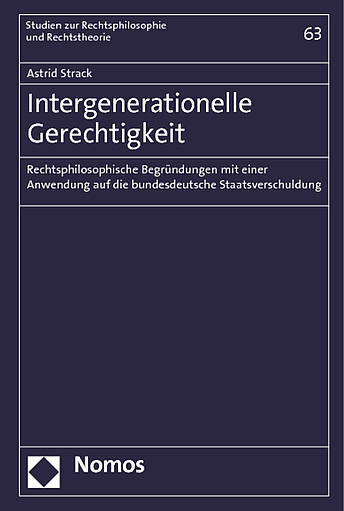englischCan we do justice to human beings who do not yet exist? The study examines substantiations and consequences of justice towards future people. After a detailed analysis of egalitarian, consequentialist and reciprocity-based theories of intergenerational justice, the author sketches an alternative model of intergenerational justice that is based on normative individualism. Thus, intergenerational justice takes both its starting point and its ultimate point of justification at the individual being, not at a generation as a collective entity. Intergenerational justice thereby proofs not to be a uniform principle but is differentiated into plural relations. Showing the ramifications of intergenerational justice in a particular real-life case, the theory is then applied to evaluate the German constitutional law on state debt. In this context, intergenerational justice yields the general illegitimacy of consumptively used long-term public debt.
Können wir gegenüber Menschen gerecht handeln, die noch nicht existieren? Die Studie untersucht Begründungen und Folgen einer Gerechtigkeit gegenüber zukünftig Lebenden. Nach einer detaillierten Analyse egalitaristischer, konsequentialistischer und reziprozitätsbasierter Theorien intergenerationeller Gerechtigkeit entwickelt die Autorin eine eigene Begründung intergenerationeller Gerechtigkeit. Diese Begründung verankert sich im normativen Individualismus, so dass intergenerationelle Gerechtigkeit ihren Ausgangs- und letzten Rechtfertigungspunkt im Individuum, nicht im Kollektiv der Generation findet. Intergenerationelle Gerechtigkeit erweist sich dabei nicht als uniformes Prinzip, sondern fächert sich in plurale Relationen auf. Um die entwickelte Theorie praktisch zu konkretisieren, erfolgt schließlich eine ausführliche Anwendung auf die bundesdeutsche Staatsverschuldung, deren wichtigstes Ergebnis eine grundsätzliche Unzulässigkeit der konsumtiven langfristigen Verschuldung ist.


